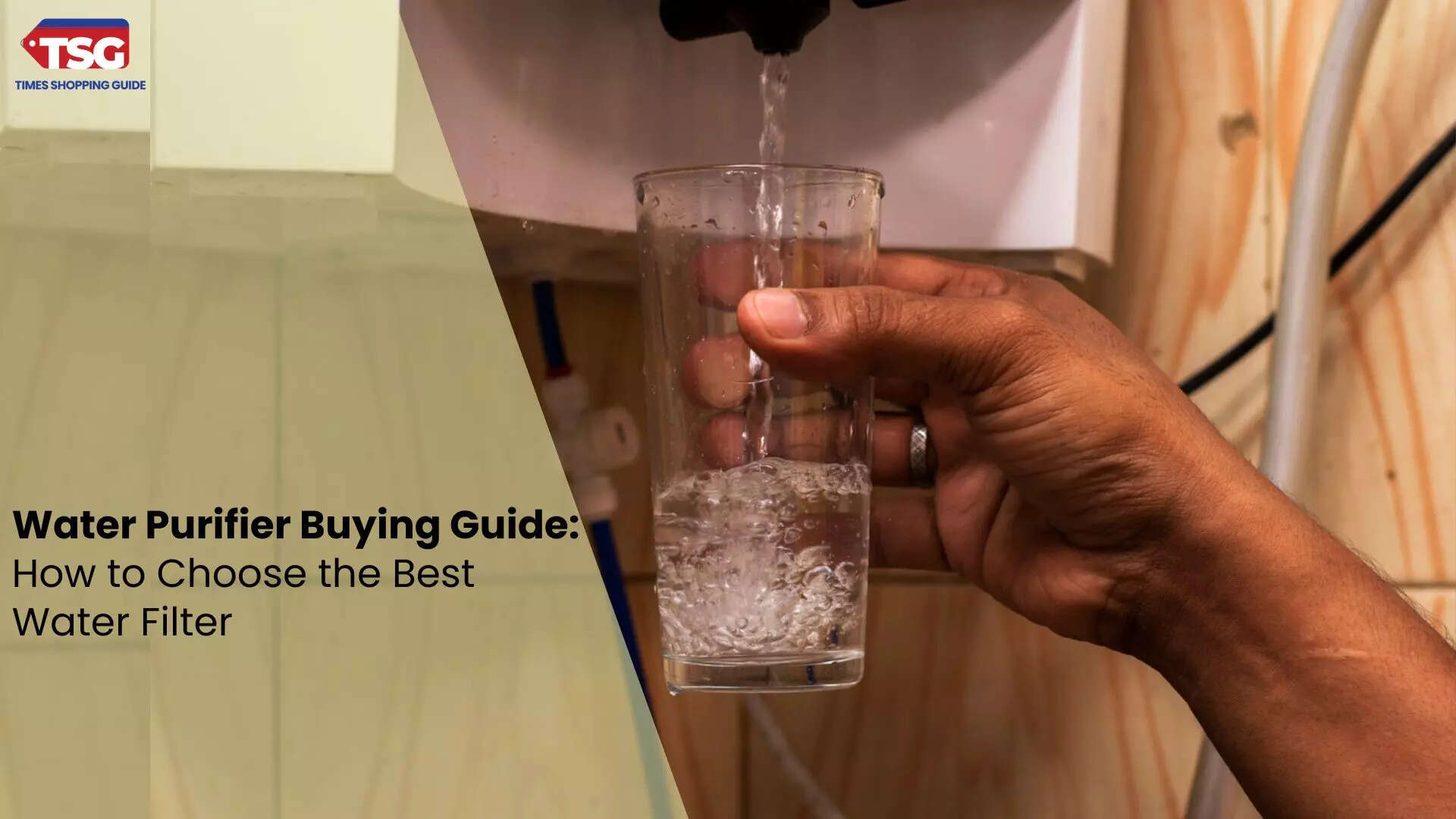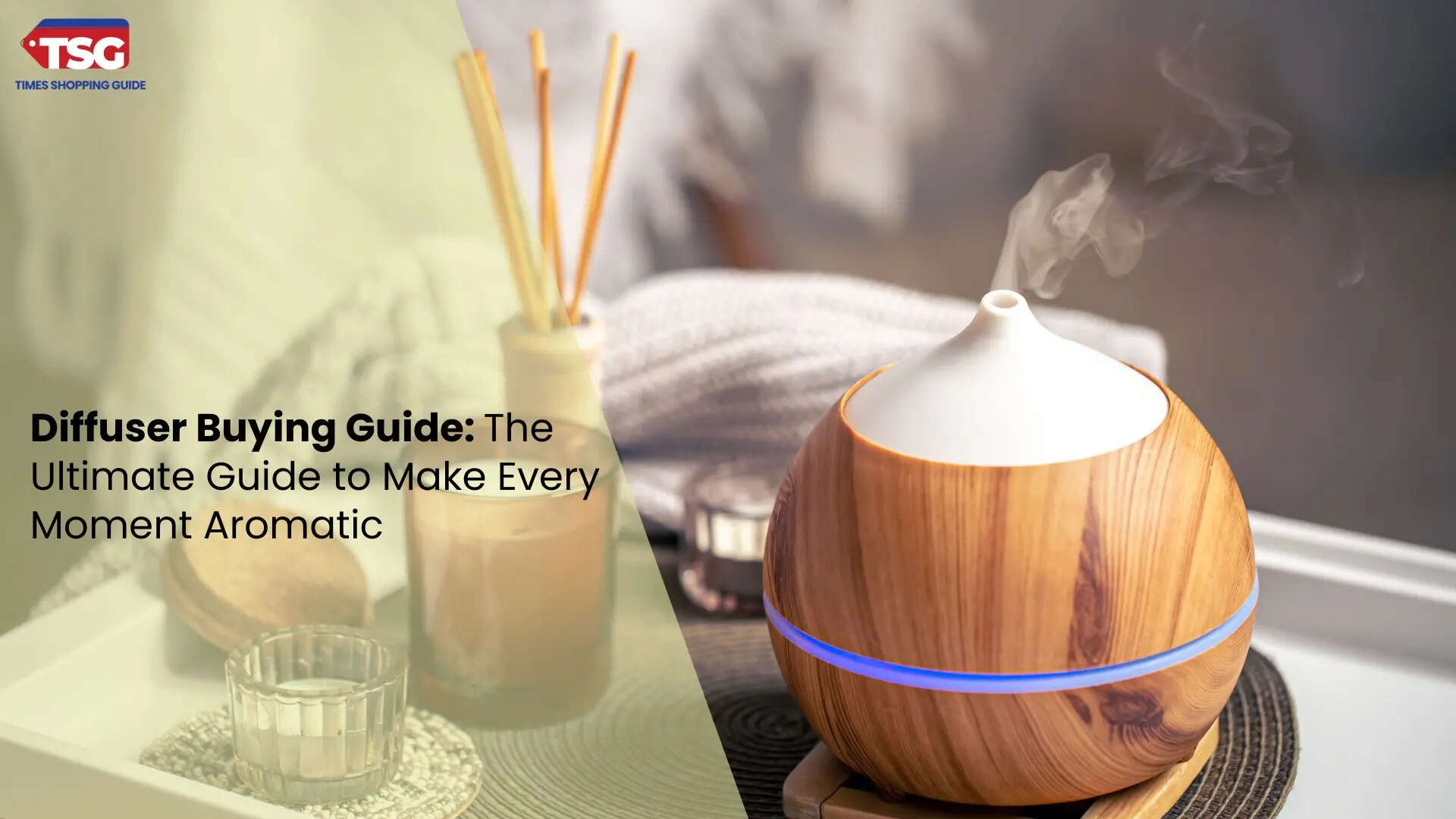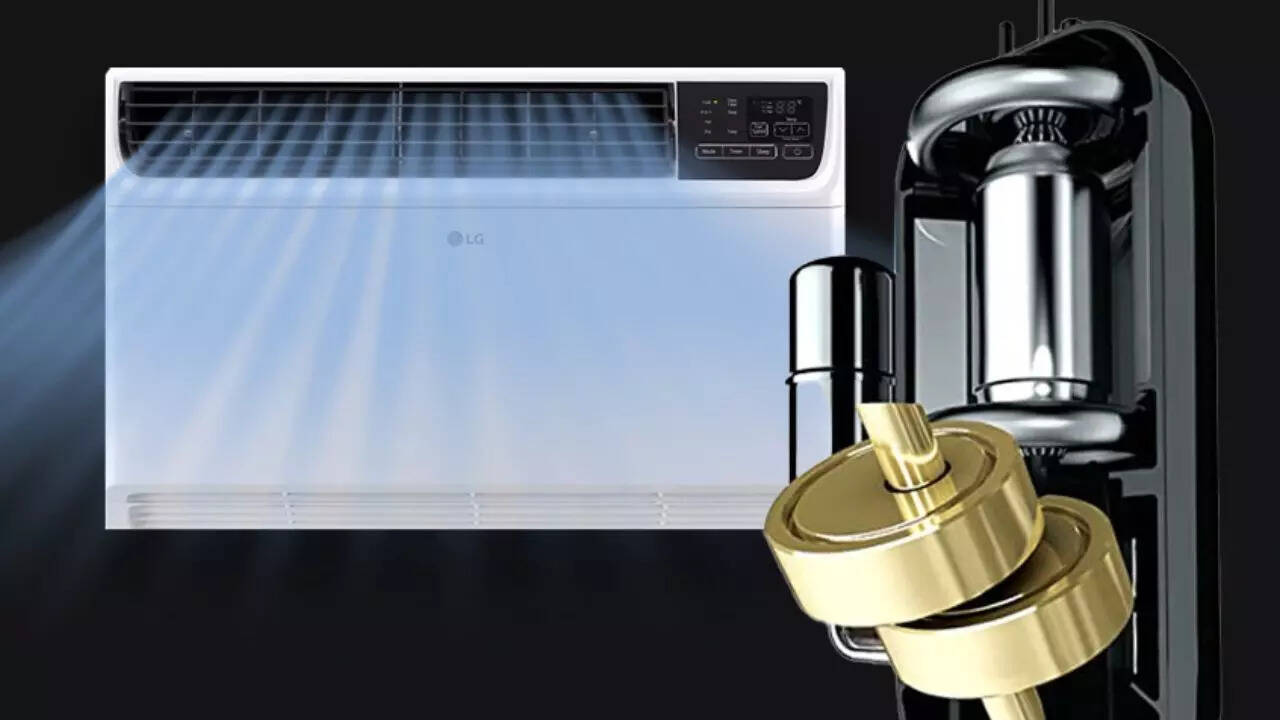- home
- appliances
- buying guide
- water purifier buying guide how to choose the best water filter
Water Purifier Buying Guide: How to Choose the Best Water Filter?
With the increasing awareness of water contamination and the variety of water purifiers available, selecting the best water purifier for home can be overwhelming. This comprehensive water purifier buying guide will walk you through the key factors to consider when choosing the best water filter for your needs, ensuring you make an informed decision for your home or office.

This buying guide for water purifiers helps you navigate these considerations for an informed decision.
Water Purifier Buying Guide: Understanding Your Water Quality
Before purchasing the best water filter, it’s crucial to understand the quality of your water supply. A water test will reveal the contaminants in your water, such as chlorine, sediment, heavy metals, bacteria, or pesticides. Many water purifiers are designed to tackle specific contaminants, so knowing what’s in your water will help you choose the best water purifier in India that addresses your unique concerns.Types of Contaminants
- Chlorine: Commonly used in municipal water treatment but can affect taste and odour.
- Sediment: Particles like dirt or rust that can clog pipes and appliances.
- Heavy Metals: Lead, mercury, and arsenic can be harmful if ingested over time.
- Microorganisms: Bacteria, viruses, and protozoa that can cause health issues.
- Pesticides and Chemicals: Residues from agricultural or industrial activities.
Water Purifier Buying Guide: Types of Water Purifiers
Water purifiers come in various types, each utilising different filtration technologies. Understanding these technologies will help you choose the best water purifier for home according to your needs.- Reverse Osmosis (RO) Systems: RO water purifiers use a semipermeable membrane to remove contaminants by forcing water through the membrane, leaving impurities behind.
- Activated Carbon Filters: These filters use activated carbon to absorb impurities and contaminants, improving taste and odour.
- UV (Ultraviolet) Purifiers: UV purifiers use ultraviolet light to kill bacteria, viruses, and other microorganisms.
- Sediment Filters: These water filters remove larger particles like dirt, sand, and rust from water.
- Distillation Units: Distillers boil water to produce steam, which is then condensed into liquid form, leaving contaminants behind.
Water Purifier Buying Guide: Capacity and Size
Consider the capacity and size of the water purifier based on your household’s water consumption. Water purifiers come in various sizes, from small countertop models to larger under-sink systems. - For Small Households: A compact countertop model or a pitcher filter may be sufficient.
- For Larger Households: An under-sink system or a whole-house filter might be necessary to meet higher water demands.
Water Purifier Buying Guide: Installation and Maintenance
Different water purifiers require varying levels of installation and maintenance. Evaluate the following aspects:1. Installation:
- DIY vs. Professional Installation: Some purifiers, like pitcher filters, are easy to set up, while others, like RO water purifiers, may require professional installation.
- Space Requirements: Ensure adequate space for the water purifier and its components.
2. Maintenance:
- Filter Replacement: Check the frequency of filter changes and the cost of replacement filters.
- Cleaning: Some systems require periodic cleaning to maintain efficiency.
Water Purifier Buying Guide: Price and Budget
Water filters come in a wide range of prices, from budget-friendly options to high-end models. When setting your budget, consider the following:- Initial Price: Includes the purchase price of the water purifier and installation fees, if applicable.
- Ongoing Price: Includes the cost of replacement filters, maintenance, and potential repairs.
Water Purifier Buying Guide: Certifications and Quality Standards
Ensure that the water purifier you choose meets industry standards and certifications. Look for certifications from organisations such as:- NSF International: Certifies that the product meets specific performance and safety standards.
- WQA (Water Quality Association): Certifies products that meet high-quality and performance standards.
Water Purifier Buying Guide: Additional Features
Consider additional features that may enhance the functionality and make the choice of the best water purifier for home:- Water Quality Indicators: Some models show when filters must be replaced or when water quality is compromised.
- Filter Life Monitoring: Monitors the lifespan of filters to ensure timely replacements.
- Flow Rate: Indicates how quickly the purifier can process water, affecting convenience and efficiency.
Water Purifier Buying Guide: Environmental Impact
Consider the water purifier's environmental impact. Some systems, like RO water purifiers, may waste water during purification. Look for models that minimize water wastage and use eco-friendly materials.Water Purifier Buying Guide: Customer Reviews and Brand Reputation
Research customer reviews and brand reputation to gauge the reliability and performance to ensure your choice is the best water filter. Look for feedback on:- Ease of Use: User experiences with installation, operation, and maintenance.
- Effectiveness: How well the purifier addresses specific contaminants
- Customer Service: Support and responsiveness of the brand.
Water Purifier Buying Guide: Trial Period and Warranty
Check if the water purifier comes with a trial period or satisfaction guarantee. Additionally, review the warranty terms to ensure coverage for defects or malfunctions. A good warranty provides peace of mind and protects your investment.FAQs
1. How do I choose a water purifier for my home?
To choose the best water purifier for home, test your water to identify contaminants, then select a water purifier that targets those issues. Consider factors like filtration technology (RO, UV, carbon), capacity, installation needs, maintenance, and cost. Opt for certified products and check reviews to ensure reliability and effectiveness.
2. Is 350 TDS water good for you?
Water with a Total Dissolved Solids (TDS) level of 350 mg/L is generally safe for drinking but may have a noticeable taste. While it’s not harmful at this level, lower TDS is often preferred for better taste and quality. Consistently high TDS may indicate a need for filtration.
3. Should I buy a RO or UV water purifier?
Choose an RO water purifier to remove dissolved solids, heavy metals, and impurities, especially in areas with hard water. Opt for a UV water purifier if you primarily need to disinfect water by killing microorganisms. For comprehensive purification, consider an RO-UV combination system for added protection.
Disclaimer: Times Shopping Guide is committed to bringing you the latest products from the best brands. Our selection is based on market research and positive consumer feedback. Times Shopping Guide is also a part of an affiliate partnership. In line with this, we may receive a portion of the revenue from your purchases. Please note that the product prices are subject to change based on the retailer's deals.










